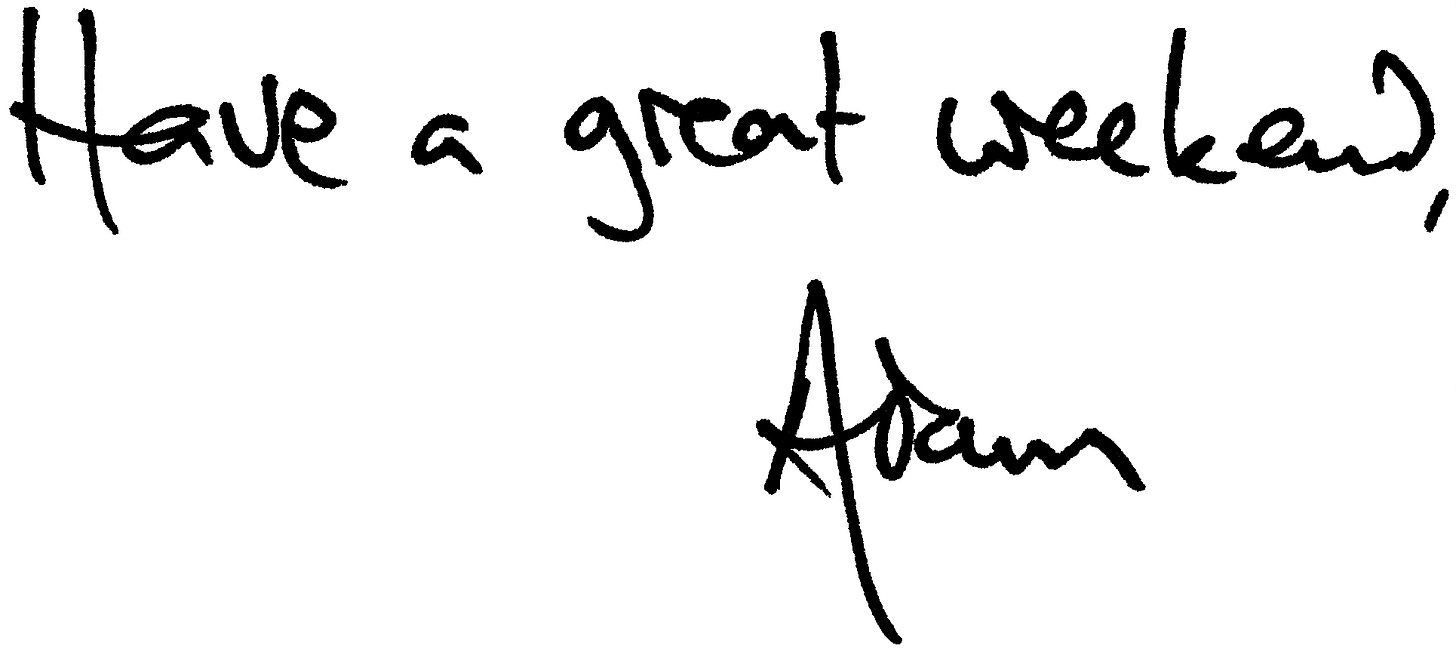Worried you're not so sharp any more?
You're probably getting better.
This one may resonate if you’re in a middle or later chapters of your working life. Earlier in your career? My next email may be more for you: hang in there!
Anthony, a colleague from years ago, wrote recently on LinkedIn about some professional exams he was about to do, later in life than most. Now in his forties, he was worried about changes he’d noticed in the sharpness of his memory. Could anyone offer reassurance or advice?
Why yes, Anthony, I can!
First, the Bad News
The decline’s real. It begins before you notice it, perhaps even in our twenties—in memory, reasoning, speed, and more, though it varies.
Anthony’s worry is common. It can even be a little scary. You make it to your forties or fifties and a few things slip your memory when once they wouldn’t have done: could this be how early-onset dementia starts?! Or, tired, you’re silently horrified to notice yourself jumbling, for a moment, two concepts you know to be unrelated—something unthinkable a decade ago. When this happens, I’ve seen people who work with their brains start to doubt that they’re going to be able to keep up, to stay safe, to be as good as they want to be.

Smart, reflective, observant types often notice these changes early. They value their intellect, so they worry.
And Now the Good News
You really don’t have to worry about this.
Psychologists’ tests, calibrated to detect small differences, can pick up declines over the decades. But the changes of normal age-related cognitive decline are small, and the mistakes trivial. Observant types notice changes that are real but just aren’t relevant to life or work. This normal decline is vastly outweighed by the benefits you’re reaping from your growing knowledge, good judgment, and skill at managing yourself.
You can see this in the research: like wine, cognitive abilities based on accumulated knowledge improve with age.
You’ve never been as old as you are today. Nor have you ever been as wise as you are today.
Toni Morrison, Diana Athill, and Isabelle Allende were (still are, in the case of Allende) writing brilliantly in their 80s or beyond (including memoir—memories). Benjamin Franklin was 81 when he helped draft the US Constitution. All gifted people, and none immune from age-related cognitive decline.
Don’t worry about it.
So …
Henry Ford is supposed to have said that, “If you think you can or think you can’t, you’re probably right.” This idea is grounded in the well-studied psychology of mindset. Believe you can do well, and you’re more likely to do the work and succeed; think you’re stuck, and it’s a self-fulfilling prophecy too. This isn’t new-age platitude or toxic positivity: it’s grounded in much solid research. The leading name in this corner of psychology is Stanford professor Carol Dweck, author of Mindset: The New Psychology of Success.1 But perhaps the most thought-provoking book I’ve read on this topic (and I’ve read a lot) is David Robson’s The Expectation Effect: How Your Mindset Can Change Your World,2 a fascinating and readable account of how what you expect to happen has big effects on everything from your mental abilities to how you handle stress (on which I’ve written here) to your exercise performance to physiological changes in how your body responds to food.
These are self-fulfilling beliefs about your abilities. And research shows they can be changed, pretty easily.3
So … let go of those worries. Remind yourself that any trivial decline your observant mind may have noticed can be disregarded. It’s more than compensated for by the skills, wisdom, and self-knowledge you’ve acquired over the years. Your detecting these trivial changes (many don’t) is a sign of your sharpness. You have an advantage. Let that be your focus: you’ll be fine.
Oh, and, however young or old you are, prioritize sleep, every day, all the time. For cognitive function, everything else pales in comparison to the importance of a good seven or eight hours of undrugged sleep, every night.
P.S. Want to connect with me on LinkedIn? I’m not a social media person. But LinkedIn is so dull that I reckon I’m safer experimenting with it, including posting some of these articles there, too. Find me here.
P.P.S. This isn’t an easy time to be looking for work. But many who do work that makes a difference are now finding themselves in that situation. If that’s you, I’d recommend the intelligent approach set out in this talk by Spencer Campbell and Dan Freehling, both experts in finding good jobs that make the world a better place.
If you find anything helpful in these free emails, it would mean a huge amount to me if you could recommend them to anyone—in any walk of life—who you think might like them. You can share this email …
… or encourage people to sign up …
… or send this link to people, or post it on social media: www.adamsandell.com/newsletter. Thank you!
Carol S. Dweck, Mindset: The New Psychology of Success (New York: Ballantine Books, 2008).
David Robson, The Expectation Effect: How Your Mindset Can Change Your World (New York: Henry Holt and Company, 2022).
Much of the relevant research is summarized in Carol Dweck’s book (above; see also Mary C. Murphy, Cultures of Growth: How the New Science of Mindset Can Transform Individuals, Teams, and Organizations, 1st ed. (New York: Simon & Schuster, 2024) and this book chapter.




